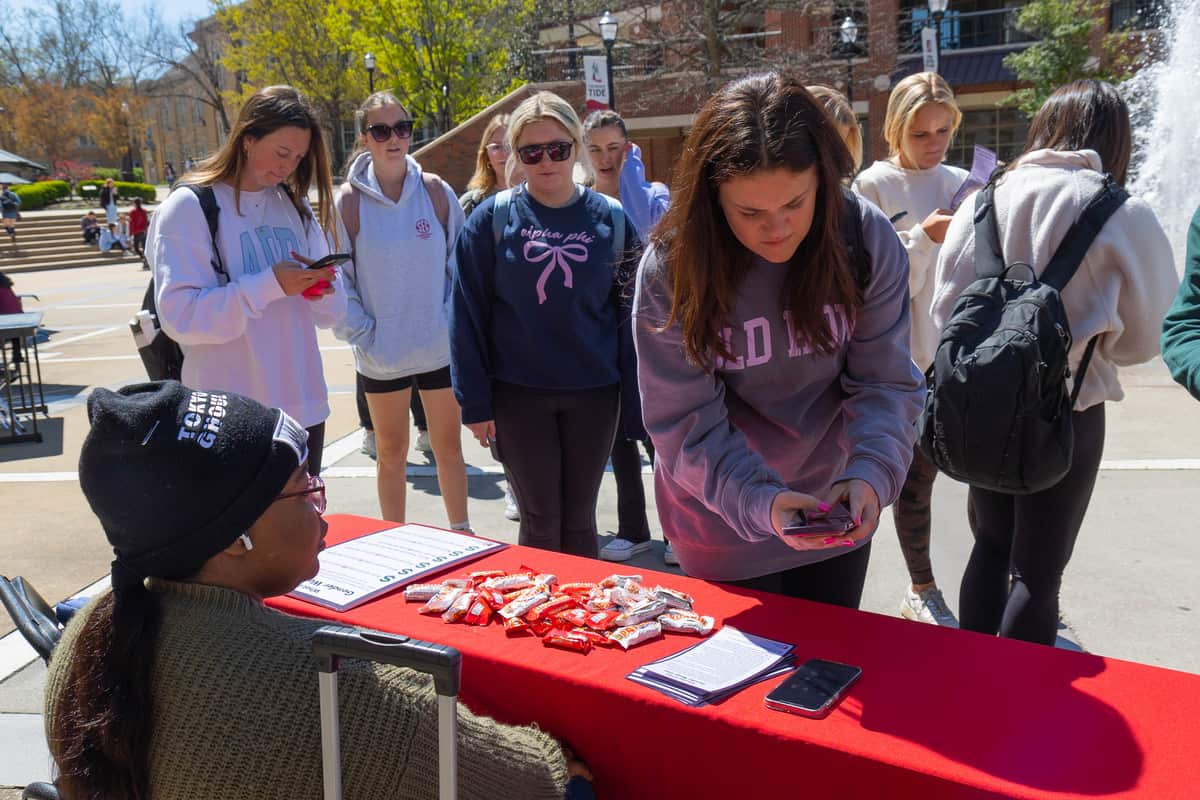The Women and Gender Resource Center is educating students on pay equity issues in light of Women’s History Month and pay equity awareness week.
It held a tabling event outside the Student Center on Tuesday where many students came up to listen to a summary of what pay equity is and talk with members of the WGRC.
WGRC seeks to ensure that students and graduates have knowledge on pay equality issues, as well as how to be a voice when a problem arises.
Jackie Northrup, the assistant director at WGRC, said the effects of pay inequity can be far reaching but the more people know, the better it can be fought.
“It’s important to know about pay equity because we all have a role in addressing inequity,” Northrup said. “Folks often understand that business leaders can check for and resolve inequity, but they may not think about the ways that average employees can also support pay equity through salary transparency and other basic advocacy.”
In 2022, Alabama women who were full-time wage and salary workers had median usual weekly earnings of $837, or 79.8% of the $1,049 median usual weekly earnings of their male counterparts, the U.S. Bureau of Labor Statistics reported.
Elizabeth Lester, the program coordinator at WGRC, said when you break down the national average of pay imbalance, it gets more complicated than what is noted.
“When you break it down by women, it also breaks down by race,” Lester said. “It’s all related to the types of jobs people are more willing to go into.”
According to the Bureau of Labor Statistics, for those who worked full-time in 2022, median earnings for white women were 83% as much as the median for their male counterparts, compared with 90.7% for Black women, 79.2% for Asian women, and 85.8% for Hispanic women.
WGRC has American Association of University Women Start Smart trainings dedicated to teaching students about pay equity. These are two-hour workshops that teach students about what the wage gap is and how to combat it. The next training sessions are March 25 and April 22.
“If you are a woman and a student, then you will be affected by this issue if you’re interested in making money one day,” Lester said.
This event was one of several WGRC initiatives for Women’s History Month.
On March 21, the organization will host a panel where students can talk to UA faculty and staff; female leaders from various student groups will also be present to discuss student activism on campus.
After that, at a March 25 event called “Women Who Speak Up, Women’s History Read-In,” participants can read their own work or share prose, poetry or any piece of literature by a different female author.









